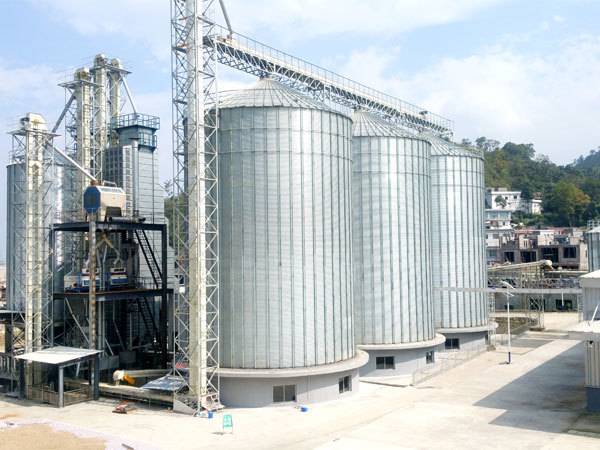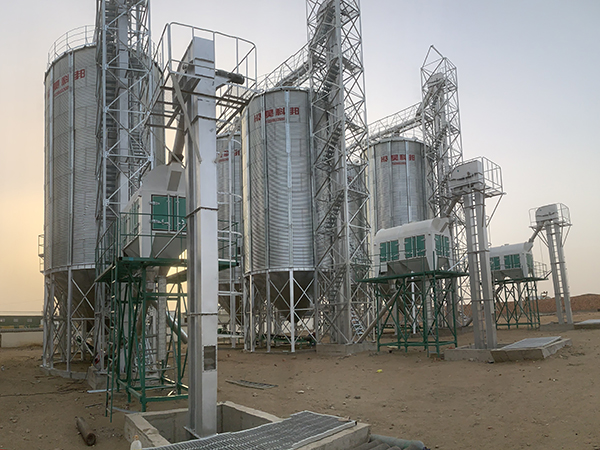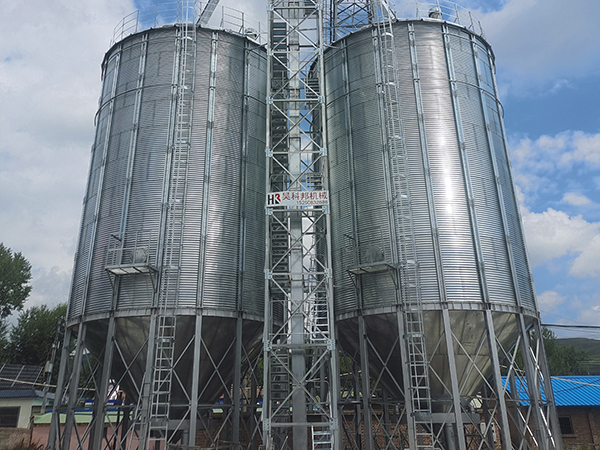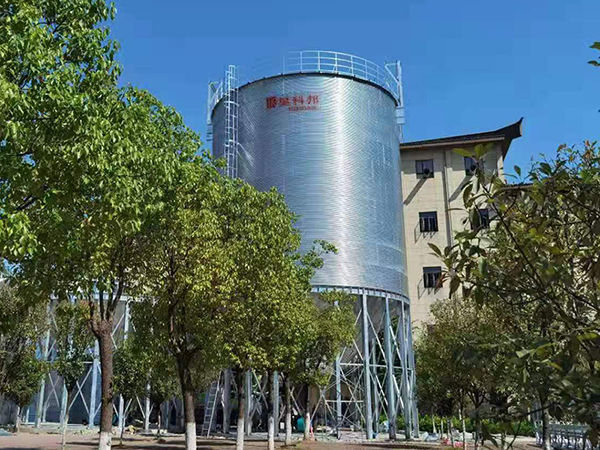large silo
A large silo is a facility used for storing large quantities of bulk materials such as grains, feed, coal, cement, sawdust, and more. These silos are commonly used in agricultural, industrial, and commercial sectors to ensure the safe and efficient storage and management of large volumes of materials over extended periods.
large silo Introduction
A large silo is a facility used for storing large quantities of bulk materials such as grains, feed, coal, cement, sawdust, and more. These silos are commonly used in agricultural, industrial, and commercial sectors to ensure the safe and efficient storage and management of large volumes of materials over extended periods. Large silos can be made from various materials, such as steel, concrete, or wood, depending on the nature of the stored materials and design requirements.

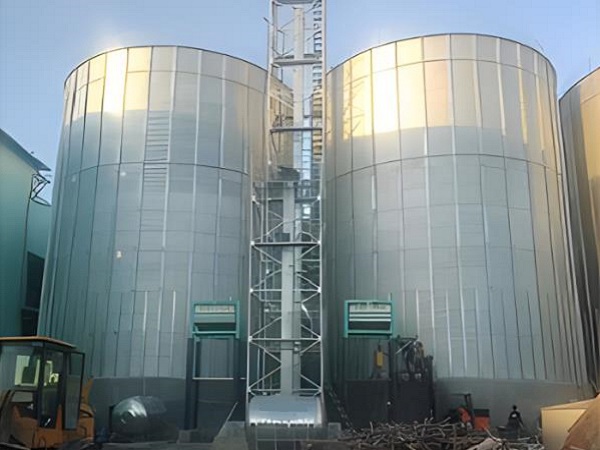
Main Features of a Large Silo
High Storage Capacity
Large silos can store thousands of tons of materials, meeting the needs of large-scale production and supply chain management.
Durability
Typically constructed from high-strength materials, they can withstand heavy loads and various weather conditions, ensuring long-term use.
Excellent Sealing
Designed with good sealing properties to prevent moisture, air, and contaminants from entering, thus protecting the quality of the materials.
Automated Management
Many large silos are equipped with automated systems, including sensors, monitoring systems, and automatic loading and unloading equipment, to enhance management efficiency and safety.
Ventilation and Temperature Control
Some large silos are equipped with ventilation and temperature control systems to prevent spoilage, deterioration, or spontaneous combustion of the stored materials.
Versatile Designs
The design of silos can be customized according to the specific needs of the stored materials, such as inclined bottoms, flat bottoms, or designs with agitators.
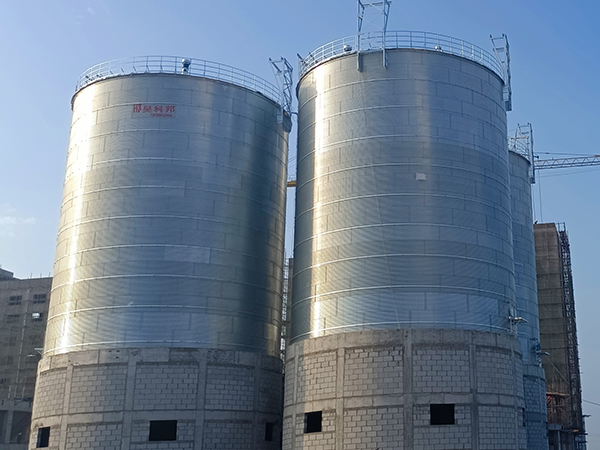
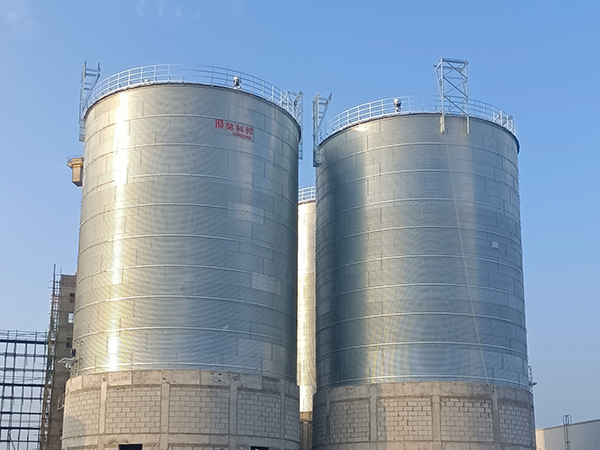
Main Components of a Large Silo
Silo Body
The main storage space, usually cylindrical or rectangular, made from materials like steel or concrete.
Top Cover
Seals the top of the silo to prevent external contaminants from entering, and may include ventilation or exhaust ports.
Bottom Structure
Includes flat bottoms or conical bottoms, supporting material storage and discharge operations. Conical bottoms aid in natural material flow.
Loading and Unloading System
Includes conveyor belts, screw conveyors, or pneumatic conveying systems to load or unload materials from the silo.
Ventilation System
Keeps the internal air circulating to prevent heating and spoilage of the materials, typically including fans and ventilation ducts.
Temperature Control System
Includes temperature sensors and control devices to monitor and regulate the temperature inside the silo, ensuring optimal storage conditions.
Monitoring System
Equipped with various sensors and monitoring devices to track the condition of the materials inside the silo in real-time, such as temperature, humidity, and material levels.
Safety Equipment
Includes explosion vents, fire alarm systems, and emergency exits to ensure rapid response in case of emergencies.
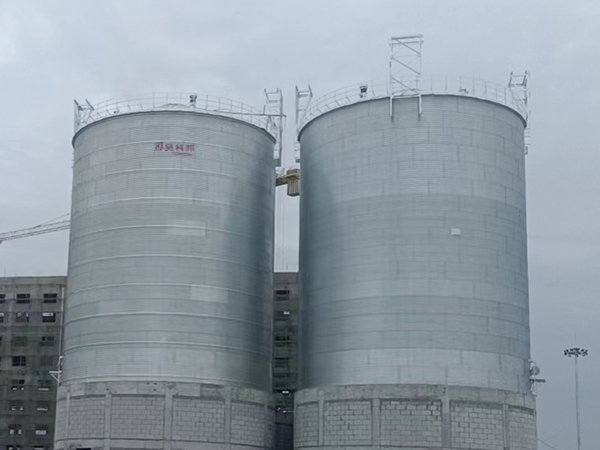

Main Advantages of a Large Silo
Efficient Storage
Allows for the centralized storage of large quantities of materials, saving space and costs, and facilitating management and logistics.
Protection
Provides excellent sealing and protection measures, ensuring materials are not affected by external environmental conditions during storage.
Automated Operations
Enhances operational efficiency and safety through automated equipment and systems, reducing manual intervention and errors.
Extended Shelf Life
Prolongs the shelf life of materials through effective ventilation and temperature control systems, reducing losses.
Flexibility
Can store various types of materials, offering wide application range and meeting the needs of different sectors.
Application scope of large silo
Coban Silo is widely used for grain storage such as wheat, corn, soybean, paddy, rice, soybean meal, barley, malt, sunflower seeds, rapeseed, peanuts, flour, and other powder materials, oat, special Silo, and seeds, etc.

large silo technical parameters
Scientifically speaking, the Silo capacity should be measured with volume (m3). Even in the same grain Silo, the storage tons will be different for different grains with different densities. The following table is calculated based on a Silo density of 0.75kg/m3, and surely HKB customizes Silo systems unique for you.
| Most Popular Hopper Bottom Steel Silo Technical Specifications | ||||||||
| Capacity | 50Ton | 100Ton | 150Ton | 200Ton | 300Ton | 500Ton | 1000Ton | 1500Ton |
| Model | TCZK
03605 |
TCZK
04507 |
TCZK
05507 |
TCZK
06406 |
TCZK
07307 |
TCZK
07313 |
TCZK
11010 |
TCZK
12811 |
| Diameter(m) | 3.667 | 4.584 | 5.500 | 6.417 | 7.334 | 7.334 | 11.000 | 12.834 |
| Total Height(m) | 9.56 | 12.53 | 13.25 | 12.85 | 14.70 | 21.42 | 20.95 | 23.51 |
| Volume(m³)
Density:0.75ton/m³ |
69 | 150 | 222 | 273 | 415 | 699 | 1346 | 2039 |
| Most Popular Flat Bottom Steel Silo Technical Specifications | ||||||||
| Capacity | 1000Ton | 1500Ton | 2000Ton | 2500Ton | 3000Ton | 5000Ton | 8000Ton | 10000Ton |
| Model | TCK
10014 |
TCK
11915 |
TCK
13715 |
TCK
15514 |
TCK
15518 |
TCK
18321 |
TCK
24718 |
TCK
25621 |
| Diameter(m) | 10.084 | 11.918 | 13.750 | 15.584 | 15.584 | 18.334 | 24.751 | 25.668 |
| Total Height(m) | 18.69 | 20.34 | 20.87 | 20.30 | 24.78 | 28.60 | 26.99 | 30.60 |
| Volume(m³)
Density: 0.75ton/m³ |
1335 | 2009 | 2701 | 2467 | 4145 | 6693 | 10879 | 13484 |
After-sale Service
- – HKB provides advanced grain safety storage technology to assure your grain silo 100% quality stability.
- – grain silo Quality guarantee is one year after installation and commissioning or 18 months after leaving China Port. Maturity is the first.
- – 7 days x 24 hours service, within 24 hours reply/solve of any technical issues upon request.
- – Routinely telephone track to remove all might be problems grain silo or issues guarantying the whole system grain silo long-lasting safety and reliability.
- – HKB will consider all other needs like customs clearance, sea delivery, insurance, customs tax benefit plan, documentation, etc. So our respected Users feel so relaxed and easy to get the grain silo system well.

